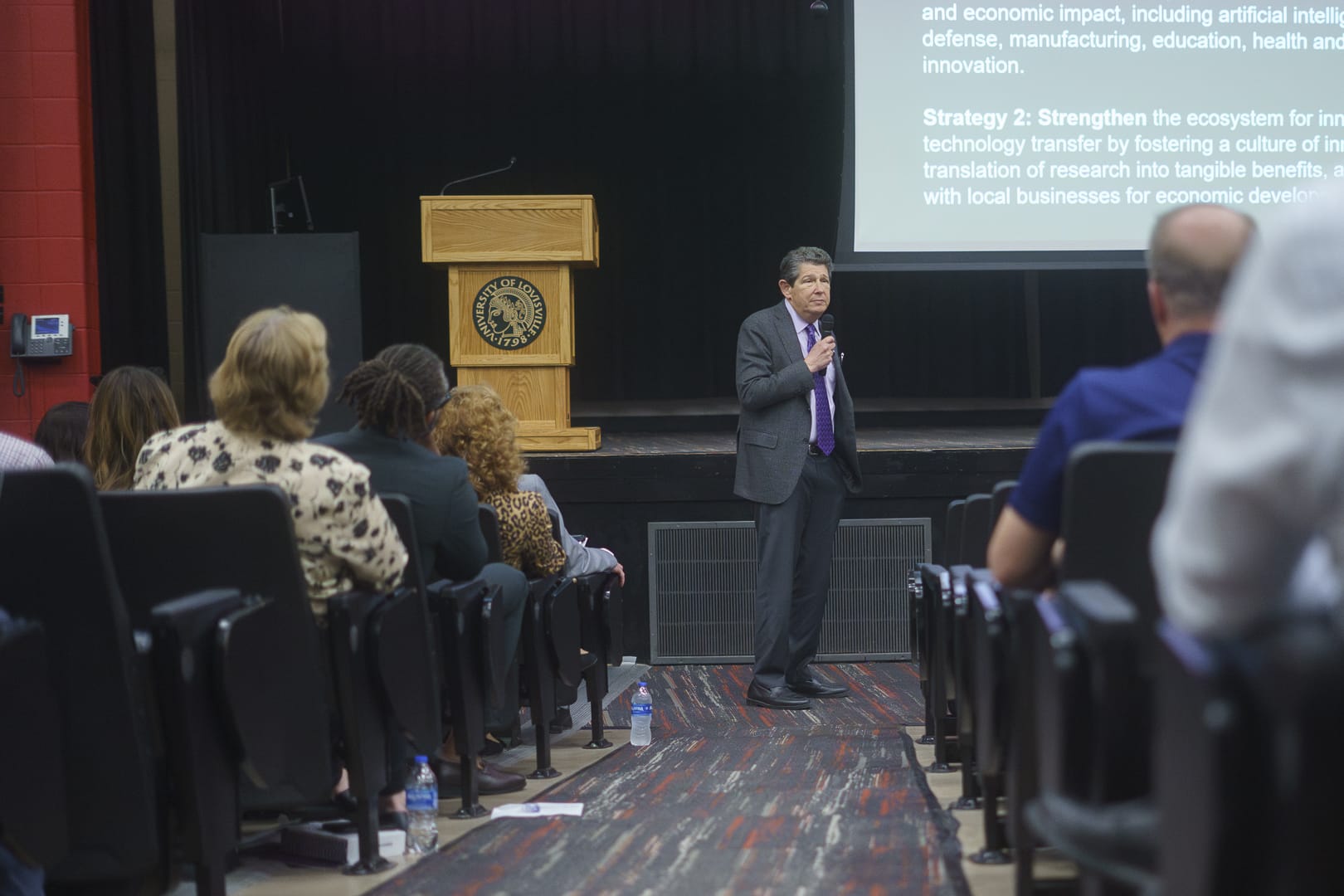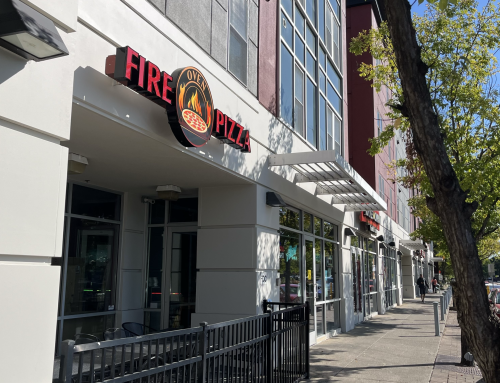By Josie Simpson and Jai’Michael Anderson
On Aug. 26, the University of Louisville hosted a town hall to discuss its new 2026-2030 strategic plan, set to be implemented by Summer 2026.
Around 70 people gathered in Middleton auditorium in Strickler Hall to attend the event. Most of whom were faculty members and administrators.
The event began with an overview of the plan by Alma Ljaljevic-Tucakovic, assistant dean for student affairs and admissions, and Cherie Dawson-Edwards, vice provost for faculty affairs. They introduced the plan’s four pillars: LEARN, DISCOVER, CONNECT and WORK.
PILLAR: LEARN
Gail Depuy, senior vice provost, opened with the LEARN pillar. She described plans to implement more interdisciplinary and community-driven degrees that align with workforce needs.
The university also intends to increase enrollment of nontraditional students, including adult, commuter, online, transfer and international students, providing them with necessary resources. Another priority is identifying and removing barriers for underrepresented, underprepared and low-income students, while ensuring compliance with the law.
PILLAR: DISCOVER
Next, Jon Klein, vice president for research and innovation, presented the DISCOVER pillar, highlighting the university’s goal to leverage its innovation, research, scholarship and creative activities for social impact.
Artificial intelligence is expected to play a key role in doing so.
“Artificial intelligence is changing the way we do just about everything,” he said. “It can yield significant advancements in learning, as well as our scholarly work. But also in operational excellence across the university.”
The plan calls for building and enhancing research infrastructure and investing in the recruitment and retention of top researchers.
While business, STEM and health programs were a key focus, Klein said the university is pushing for prominence in other scholarly areas.
“When we look back at those four previous strategic plans that I was a part of, we did not have a goal to elevate our humanities, arts and social sciences by advancing their research,” Klein said. “We think that deserves a goal of its own.”
Supporting performing arts is also included as a top priority.
PILLAR: CONNECT
Douglas Craddock Jr., vice president for community engagement, and Julie Dials, senior associate vice president, introduced the CONNECT pillar, which focuses on strengthening the university’s ties to the Louisville community and the Commonwealth of Kentucky.
Their presentation emphasized increasing awareness, accessibility, value and impact of the university’s partnerships with community organizations, industry, government, and alumni.
Plans also include creating a comprehensive alumni engagement program to better connect students and alumni.
PILLAR: WORK
Finally, Darrell Clark, vice president for human resources, and Cherie Dawson-Edwards, vice provost for faculty affairs, discussed the WORK pillar, which centers on faculty and staff.
They stressed the importance of fostering an environment where employees live by institutional values and ensuring the university remains a great place to work.
Additional initiatives include programs to hold faculty accountable for enhancing campus life and understanding the university’s vision, as well as efforts to attract and retain top talent by providing professional development opportunities and creating a diverse, supportive workplace.

From left, Kathryn Cardarelli, University of Louisville interim provost, and U of L president Gerry Bradley discuss the university’s strategic plan draft with faculty members in Strickler Hall, Aug. 28, 2025. This is the university’s first strategic plan since the two were promoted in the spring semester 2025. (Photo by Jai’Michael Anderson, The Louisville Cardinal)
President Gerry Bradley & Interim Provost Kathryn Cardarelli Q&A
The town hall concluded with a Q&A session led by President Gerry Bradley and Interim Provost Kathryn Cardarelli.
Bradley emphasized that diversity is a top priority for the university, noting that a recent student survey identified it as the main reason many chose U of L.
“We are a campus for all,” he said adding that this commitment, “has not wavered.”
Cardarelli highlighted that the university is focused on the overall well-being of students, including financial need, inclusion and mental health.
When asked about budget priorities for student experience, Bradley said his goal is for every student to have a paid internship or co-op as part of their time at the university.
In response to a question about increasing visibility, Bradley explained that when he arrived in 2016, he felt the University of Kentucky’s planning overshadowed Louisville’s. To combat this, he has met with 48 of Kentucky’s 138 legislators in the past five months to share UofL’s impact through alumni, programs, and Pell dollars that go back into Kentucky’s communities.
Open to feedback
Cardarelli and Bradley both made it clear that as the university takes its next steps they want the entire U of L community to be a part of the process. Bradley noted that the university has started to iterate changes to the plan aligning with feedback they have received since the draft’s official release on Aug. 20.
“We are very much listening to what you all are saying,” said Bradley. “We really want this to be a really grounds-up approach to this plan because it’s our plan. Not my plan or the Provost’s plan.”
They encouraged students and faculty to submit feedback by Friday, Sept. 5. Administrators plan to submit the final draft to the Board of Trustees by January 2026.
Click here for more information and updates on the draft.






